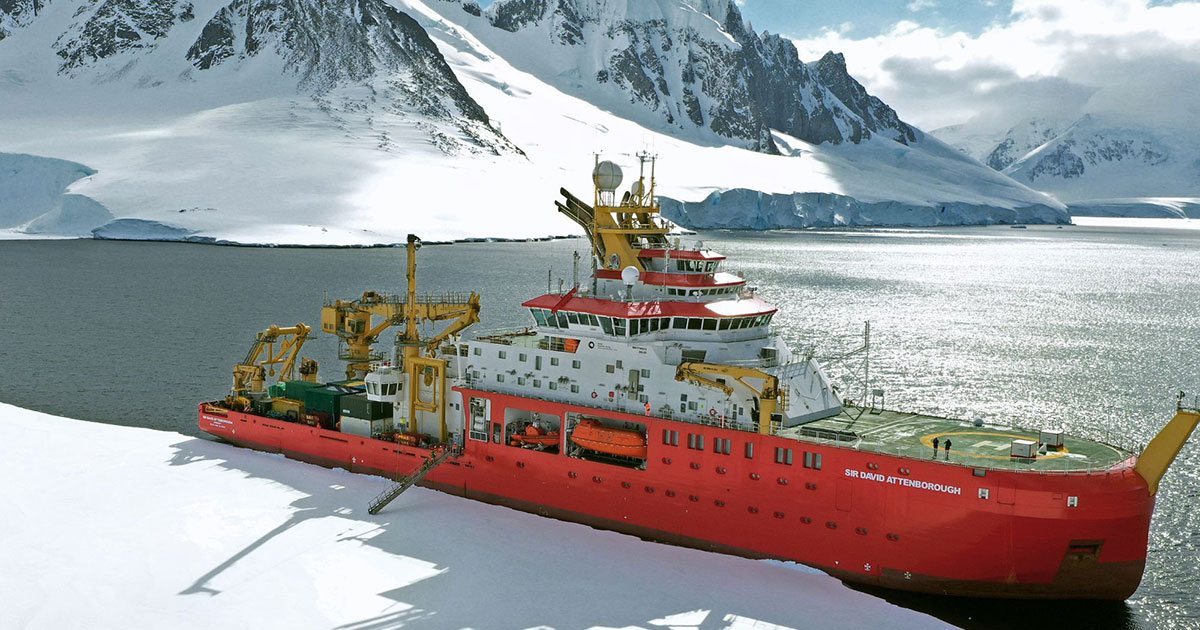The ambitious 30-day scientific expedition aboard the RRS Sir David Attenborough is part of the PICCOLO project.
With its severe environment of mountainous seas, roaring winds, and freezing temperatures and ice, the vast and remote Southern Ocean surrounding Antarctica is one of the least explored parts of the global Ocean.
It is also the world’s largest heat and carbon sink, but many of its biological, chemical and physical processes are not yet fully understood.
Cue the PICCOLO project which aims to understand and quantify the mechanisms that transform the carbon contained in the seawater as it rises to the surface near Antarctica and interacts with the atmosphere, ice, phytoplankton and zooplankton inhabiting the near surface, before descending to the ocean depths.
A collaborative team of scientists are currently on their way to the Weddell Sea from Punta Arenas, Chile to begin the PICCOLO cruise.
PML’s Professor Tom Bell is co-lead of the PICCOLO project and is leading the PML team. Before joining the expedition, he kindly sat down to talk all about it.
What is PICCOLO?
PICCOLO stands for “Processes Influencing Carbon Cycling: Observations of the Lower limb of the Antarctic Overturning”
‘Overturning’ circulation is the name for the global network of ocean currents that redistribute heat, carbon, and nutrients across the world's ocean. In Antarctica specifically, it involves the sinking of dense, carbon-rich water from the surface, which then spreads along the sea floor, before it rises to the surface hundreds of years later, thousands of kilometers away.
The PICCOLO team will make use of the latest technologies, including autonomous submarines, gliders and floats, to observe these processes in otherwise inaccessible and previously unstudied areas such as under the sea ice.
Most ambitiously, the scientists have anchored a mooring to the seabed and left it over winter to collect data, aiming to recover it during the main research cruise.
Observations and data from the project will feed into Earth system models to better enable them to quantify oceanic carbon cycles and increase the confidence in the projections made by such models. Free access to near real-time data will benefit forecasting models at global weather services (such as the UK Met Office) and the novel observational techniques developed by PICCOLO will inform the design of the Southern Ocean Observing System.
The project aims to provide valuable data to help inform future policy with regards to the uncertainties in future sea level rise and also raise awareness of global change and polar processes.
The PICCOLO cruise is part of the NERC-funded RoSES research program. The project is being led by PML and the University of East Anglia (UEA), alongside the British Antarctic Survey (BAS) (which operates the RRS Sir David Attenborough), the University of Plymouth, the University of Leeds, the University of St. Andrews.
Stay tuned for updates on this project, using the hashtag #AntarcticPICCOLO on social media.



